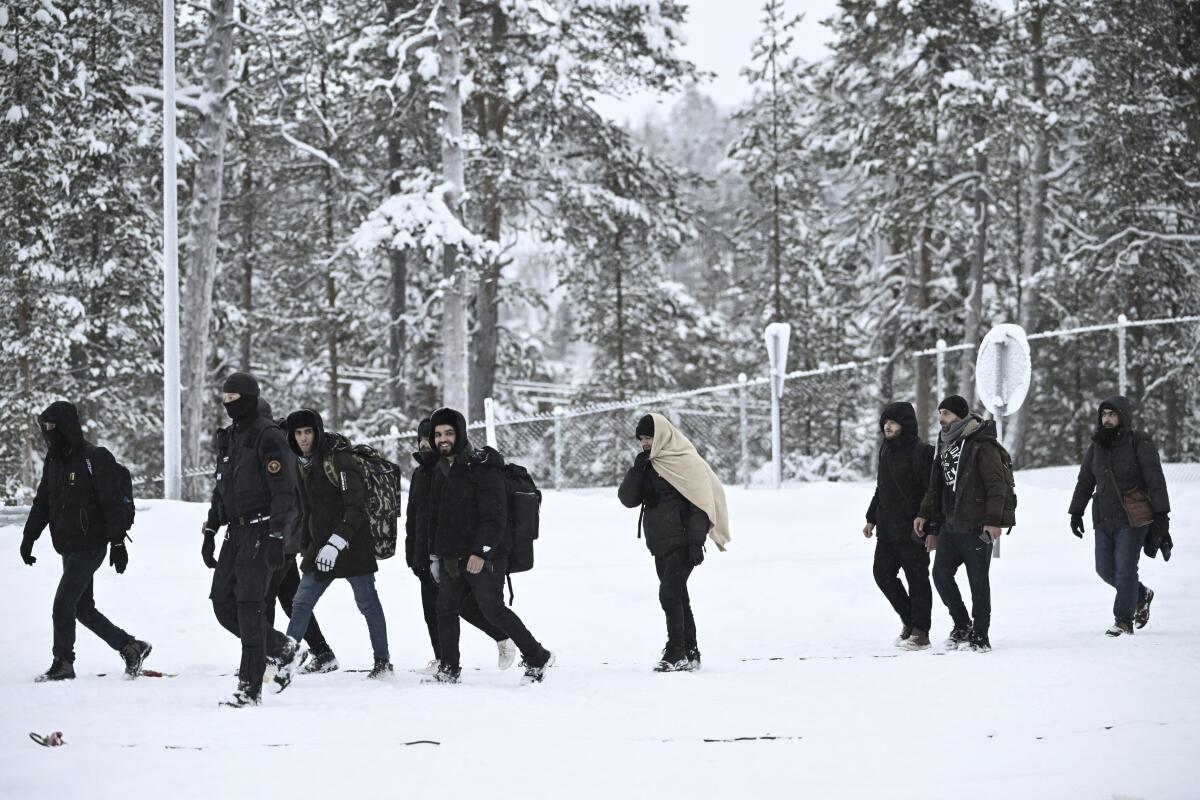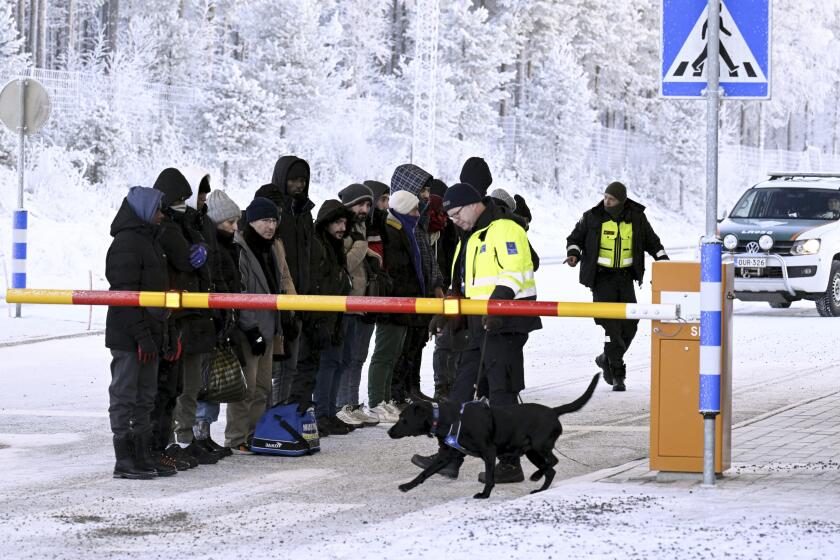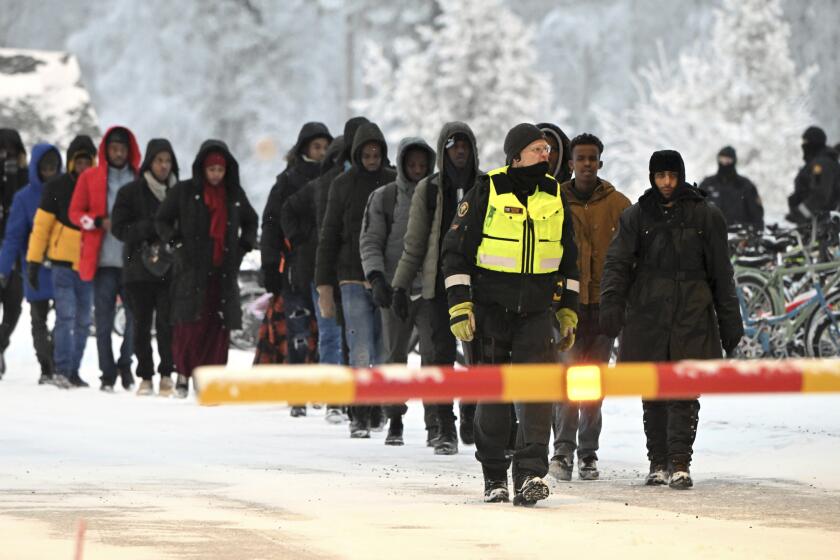Finland will close its border with Russia over migrant concerns

HELSINKI — Finland said Tuesday it will close its last remaining border crossing with Russia amid concerns that Moscow is using migrants as part of “hybrid warfare” to destabilize the Nordic country following its entry into NATO.
Finland already had shut seven of the eight checkpoints on its 830-mile border with Russia this month following a surge in arrivals of migrants from the Middle East and Africa. Helsinki has accused Moscow of ushering them toward the frontier — through thick forests in the south to the rugged Arctic landscape in the north.
Since August, a trickle of asylum-seekers have arrived at the normally heavily controlled border, which makes up a significant part of NATO’s northeastern flank and acts as the European Union’s external border in the north. This month, Finnish authorities say about 900 crossed from Russia, an unusual increase.
“The government has decided to close all the crossing points on the entire eastern border,” Prime Minister Petteri Orpo told reporters, saying Finland faced an “exceptional” situation that the government blames on Moscow for orchestrating.
“Finland has a profound reason to suspect that the entry [of migrants] is organized by a foreign state. This deals with Russia’s influencing operations and we won’t accept it,” Orpo said bluntly. “We don’t accept any attempt to undermine our national security. Russia has caused this situation and it can also stop it.”
Finnish border guards erect barriers including concrete obstacles topped with barbed-wire at crossing points on the country’s border with Russia.
Since August, some 1,000 migrants without visas or valid documentation from countries that include Afghanistan, Eritrea, Ethiopia, Iraq, Pakistan, Somalia, Syria and Yemen have come to the border, most of them seeking asylum in the country of 5.6 million.
Orpo said in a separate statement that Russia is guiding people to the border “in harsh winter conditions. Finland is determined to put an end to this phenomenon.”
Two years ago, the EU accused Russia’s ally Belarus of using migrants seeking a better life in Europe as pawns to destabilize Western democracies. European leaders called it a form of “hybrid warfare” by Moscow, along with disinformation, election interference and cyberattacks.
Finnish Foreign Minister Elina Valtonen used that same description in a Nov. 22 interview with the Associated Press.
She said there is no doubt that Russia “is instrumentalizing migrants” as part of its “hybrid warfare.” Before joining NATO this year, a decision prompted by Moscow’s invasion of Ukraine, Finnish officials warned that Russia could seek ways to destabilize the country in retaliation, including cyberattacks and ushering migrants to its borders — something that happened in Finland during the winter of 2015-16.
The European Union’s border agency says that it will send dozens of officers and equipment as reinforcements to Finland to help police its borders.
“We have proof showing that, unlike before, not only Russian border authorities are letting people without proper documentation to the Finnish border, but they are also actively helping them to the border zone,” Valtonen said.
The Kremlin denies encouraging the migrants, and says it regrets the Finnish border closures. Russian Foreign Ministry spokeswoman Maria Zakharova argued last week that Helsinki should have instead tried to “to work out a mutually acceptable solution or receive explanation.”
Some Western political analysts believe Russia’s motive is to create havoc on the EU’s external borders.
For decades, Finnish and Russian border authorities both checked that only people with proper documents can cross — both ways. Recently, however, Finnish officials noted the change in checks by Russian guards, who normally don’t allow foreigners to within a radius of several miles.
Interior Minister Mari Rantanen said the last border crossing for vehicle traffic that remains open, Raja-Jooseppi in Finland’s Arctic north, would close at midnight Wednesday and stay shut until Dec. 13. A rail crossing between the two countries remains open, but only for cargo traffic.
More to Read
Sign up for Essential California
The most important California stories and recommendations in your inbox every morning.
You may occasionally receive promotional content from the Los Angeles Times.












